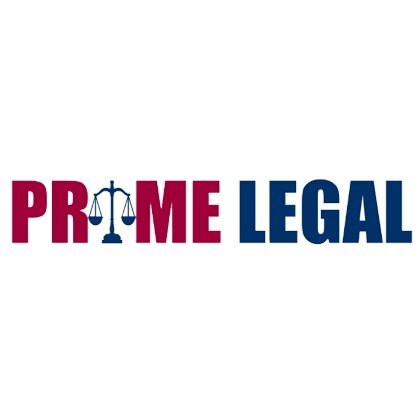Best Restructuring & Insolvency Lawyers in Kathmandu
Share your needs with us, get contacted by law firms.
Free. Takes 2 min.
List of the best lawyers in Kathmandu, Nepal
About Restructuring & Insolvency Law in Kathmandu, Nepal
Restructuring and insolvency law in Kathmandu, Nepal, is designed to address the financial difficulties faced by individuals and businesses unable to meet their debt obligations. The process involves various legal mechanisms that allow companies or individuals to reorganize their debts, come to agreements with creditors, or in some cases, liquidate assets to satisfy obligations. Nepal's legal framework aims to balance the interests of debtors with those of creditors while providing an orderly method for resolving financial distress. In Kathmandu, where commerce and industry are rapidly evolving, understanding the local approach to restructuring and insolvency is essential for both business owners and private individuals.
Why You May Need a Lawyer
Seeking legal advice for restructuring and insolvency is crucial because these matters often involve complex procedures and multiple parties. Here are common situations when hiring a lawyer in Kathmandu becomes important:
- You are a business owner facing mounting debts and cash flow problems, and you want to explore possible restructuring options.
- You are an individual who cannot pay personal debts and needs to understand bankruptcy or insolvency procedures.
- Certain creditors are threatening legal proceedings, asset freeze, or repossession.
- You seek to negotiate a settlement or revised payment plan with your creditors.
- Your company requires guidance on voluntary liquidation, administration, or court-based insolvency proceedings.
- You need assistance in complying with local regulations and documentation for insolvency filings.
- There are allegations of fraudulent activity or mismanagement in your business related to insolvency.
A local lawyer can help navigate the legal requirements, represent your interests in negotiations or court, and maximize the chances of a favorable outcome.
Local Laws Overview
Nepal’s restructuring and insolvency framework is governed primarily by the Insolvency Act, 2063 (2006), along with associated regulations and guidelines. Here are some key features of the law relevant to Kathmandu:
- Insolvency Proceedings: These can be initiated by either the debtor themselves, a creditor, or by an authorized authority. The process is handled through the court system, specifically the High Court established for the jurisdiction.
- Corporate Restructuring: The law allows companies facing temporary financial problems to apply for restructuring, working with creditors to develop repayment or business revival plans.
- Liquidation: If restructuring is not viable, insolvency may lead to liquidation. Assets are managed and sold under court supervision to pay off as much debt as possible.
- Moratorium: Upon accepting an insolvency application, the court often issues a moratorium that protects debtors from creditors' legal actions for a certain period.
- Role of Creditors: Creditors play a significant role in approving plans for restructuring or liquidation and can participate in meetings organized through the court process.
- Asset Distribution: The legal framework sets a priority order for the distribution of proceeds from asset sales, ensuring fairness among creditors.
- Bankruptcy Offenses: The law imposes penalties for fraudulent conduct, concealment of assets, or other misconduct during insolvency.
Familiarity with these laws ensures that parties involved follow the correct procedures and protect their legal rights during financially challenging situations.
Frequently Asked Questions
What does insolvency mean in the context of Nepal?
Insolvency refers to a state where an individual or a company is unable to pay their debts when they become due. Under Nepalese law, insolvency triggers a legal process led by the courts to resolve outstanding debts, which may include restructuring agreements or asset liquidation.
How is restructuring different from liquidation?
Restructuring involves reorganizing the debtor’s financial or operational structure to facilitate continued business or payment to creditors. Liquidation, on the other hand, is the process of closing down a business and selling its assets to settle debts.
Who can file for insolvency in Kathmandu?
In Kathmandu, an individual, a company, its creditors, or an authorized regulatory authority can initiate insolvency proceedings, depending on the circumstances outlined in the Insolvency Act.
What is the typical process for insolvency cases?
The process usually begins with filing an insolvency petition in the High Court. If accepted, the court may issue a moratorium and appoint a liquidator or restructuring manager. Creditors’ claims are collected, negotiations may occur, and the court approves or denies proposed solutions.
Is it possible to rescue a business during insolvency?
Yes, Nepal’s law provides for restructuring options. If the business is deemed viable and creditors agree to a plan, the company may continue operating under court-supervised guidelines.
How long does the insolvency process take?
The timeline can vary depending on case complexity, the number of creditors, and whether the case leads to restructuring or liquidation. Some cases may resolve in a matter of months, while others can take longer.
Are personal assets always at risk in insolvency cases?
For individuals, personal assets may be used to pay off debts. For businesses, especially limited liability companies, the risk to personal assets is limited unless personal guarantees or misconduct are involved.
What are the consequences of insolvency for business directors?
Directors must comply with legal obligations during insolvency. Failures or fraudulent activities can result in disqualification, fines, or criminal liability. Honest directors acting in good faith are generally protected.
Can foreign creditors participate in Nepal's insolvency proceedings?
Yes, foreign creditors have the right to file claims and receive distributions in accordance with Nepal’s insolvency laws, though there may be additional requirements for documentation and local representation.
Do I need a lawyer to handle restructuring or insolvency?
While not strictly mandatory, legal representation is highly recommended due to the complex procedures, documentation, and negotiations involved. A lawyer will ensure compliance with local laws and best protect your interests.
Additional Resources
Several resources and organizations in Kathmandu provide information or assistance related to restructuring and insolvency:
- Office of the Company Registrar (Kathmandu) - Handles company registrations, modifications, and related legal filings.
- Supreme Court of Nepal and High Court Kathmandu - Serve as adjudicating authorities on insolvency matters.
- Nepal Rastra Bank - Provides guidelines regarding asset management, bank insolvencies, and corporate debt restructuring.
- Nepal Bar Association - Can connect individuals with licensed lawyers experienced in insolvency law.
- Insolvency Practitioners and Liquidators - Registered professionals authorized to administer insolvency procedures.
It may also be helpful to consult local business associations or chambers of commerce for additional guidance.
Next Steps
If you believe you may require legal assistance for restructuring or insolvency in Kathmandu, here is how you can proceed:
- Gather and organize all relevant financial documents, including debts, assets, contracts, and statements.
- Contact a lawyer or insolvency professional experienced with Nepalese law, ideally one based in Kathmandu.
- Discuss your specific circumstances, desired outcomes, and available legal options.
- Follow legal advice closely, ensuring timely filing of any required documents or court applications.
- Communicate transparently with creditors and involved parties to facilitate a smoother process.
- Utilize available support services from relevant government offices or legal organizations mentioned above.
Taking prompt action and seeking proper legal guidance will help you navigate the complexities of restructuring and insolvency in Kathmandu and protect your interests during challenging financial times.
Lawzana helps you find the best lawyers and law firms in Kathmandu through a curated and pre-screened list of qualified legal professionals. Our platform offers rankings and detailed profiles of attorneys and law firms, allowing you to compare based on practice areas, including Restructuring & Insolvency, experience, and client feedback.
Each profile includes a description of the firm's areas of practice, client reviews, team members and partners, year of establishment, spoken languages, office locations, contact information, social media presence, and any published articles or resources. Most firms on our platform speak English and are experienced in both local and international legal matters.
Get a quote from top-rated law firms in Kathmandu, Nepal — quickly, securely, and without unnecessary hassle.
Disclaimer:
The information provided on this page is for general informational purposes only and does not constitute legal advice. While we strive to ensure the accuracy and relevance of the content, legal information may change over time, and interpretations of the law can vary. You should always consult with a qualified legal professional for advice specific to your situation.
We disclaim all liability for actions taken or not taken based on the content of this page. If you believe any information is incorrect or outdated, please contact us, and we will review and update it where appropriate.

















